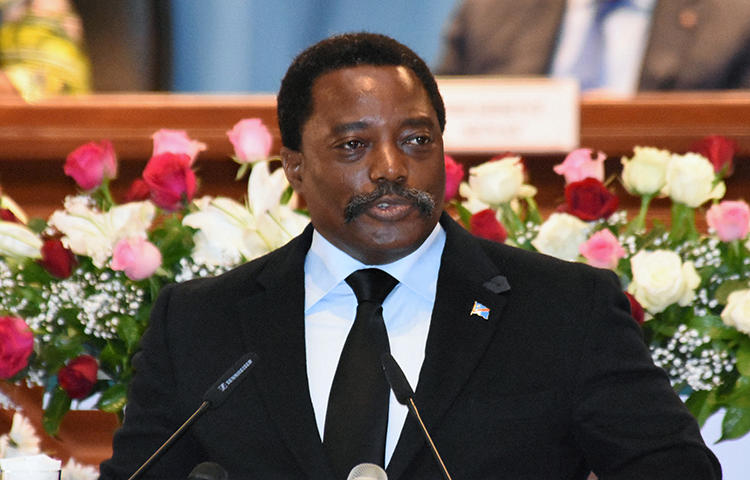New York, January 25, 2018–Authorities in the Democratic Republic of Congo should investigate and bring to justice those responsible for the harassment and detention of Willy Akonda, a reporter with the privately owned ACTUALITE.CD news outlet, the Committee to Protect Journalists said today.
Agents from the Congolese military intelligence services (DEMIAP) on January 23 detained Akonda for nine hours, and accused him of taking photographs that “compromised” President Joseph Kabila, the journalist told CPJ. The military intelligence services also confiscated Akonda’s two cellphones and returned them to him the next day, he said in an interview with CPJ following the phones’ return.
Akonda was taking photographs of bread transportation conditions in the DRC’s capital Kinshasa, when a man in plainclothes who identified himself as a member of the Congolose military proceeded to arrest the journalist, according to Akonda.
The main in plainclothes who identified himself as a DEMIAP officer took Akonda to the local police station, and then transferred him to the military intelligence office where members of the DEMIAP reviewed the contents of his two phones, Akoda said.
“The person in charge of that DEMIAP office identified only as “Major” threatened me with death and said that he could shoot me without any problem because he only responds to the president,” Akonda told CPJ. “They [DEMIAP agents] handcuffed both my hands and started pulling my handcuffs tightly to make it hurt me more,” he said.
After the DEMIAP officers questioned him, Akonda said he was left in a room seated on a piece of metal until his release.
“Willy Akonda should have never been arrested, detained or maltreated,” said CPJ Africa Program Coordinator Angela Quintal. “It is absurd that authorities associate the act of taking photographs with an attack on the head of state. Congolese authorities should stop arresting journalists for reporting on matters of public interest.”
According to a media report by ACTUALITE.CD, the DEMIAP head, Delphin Kahimbi, said they will “sanction” the officers responsible for Akonda’s harassment, but did not specify when or what action would be taken.
When CPJ contacted a Congolese military colonel known only as Maurice, who Akonda said facilitated his release, for comment; the colonel asked CPJ to call him back later and was then unreachable on subsequent attempts.
In recent months, CPJ has documented frequent incidents where journalists in the Democratic Republic of Congo have been harassed, arrested, and detained for their reporting.
- Information on safe reporting practices for journalists in the DRC, including how to protect a phone’s contents in case it is seized by authorities, is available via safety@cpj.org.
